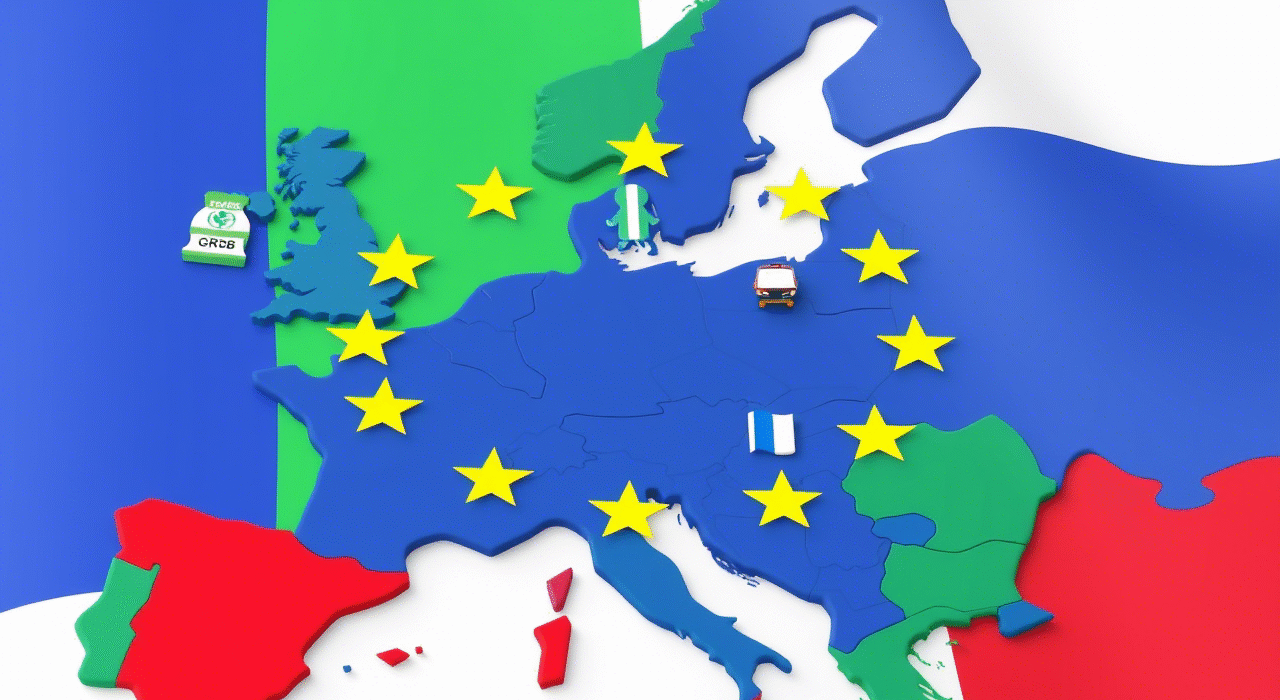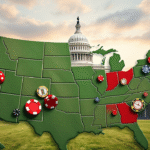🇪🇺 Europe: One Market, Dozens of Rulebooks
For an economic bloc famed for its unity and free movement, the European Union’s gambling market is anything but harmonized.
Despite the EU being a single market, each member state operates its own gambling regulation framework—resulting in 27 conflicting regimes. From licensing requirements to advertising restrictions and tax models, the regulatory landscape is a legal minefield for any operator trying to scale across borders.
Is it time for the EU to step in and unify gambling regulation across the continent?
Or will the current patchwork persist—fueling inefficiency, consumer confusion, and unfair market advantages?
🧩 The Current State of Chaos: A Snapshot
Let’s look at how fragmented it really is:
| Country | National Regulator | Online Casino | Sports Betting | Key Traits |
| Germany | GGL (Gemeinsame Glücksspielbehörde) | ✅ (regulated) | ✅ (regulated) | Very strict, unified since 2021 |
| Netherlands | Kansspelautoriteit (KSA) | ✅ (since 2021) | ✅ | Modern but heavy on enforcement |
| France | ANJ (Autorité Nationale des Jeux) | ❌ (casino banned) | ✅ | Tight control, partial monopoly |
| Sweden | Spelinspektionen | ✅ | ✅ | Pro-player rules, licensed since 2019 |
| Malta | Malta Gaming Authority (MGA) | ✅ | ✅ | Popular for offshore B2B/B2C |
| Italy | ADM (Agenzia delle Dogane e dei Monopoli) | ✅ | ✅ | Heavily taxed and regulated |
| Finland | Veikkaus (state monopoly) | ❌ (until 2026 reform) | ❌ | Monopoly soon ending |
No two systems are alike. A pan-European brand must navigate a legal labyrinth just to be compliant in half a dozen markets.
🔄 The Problem with Fragmentation
1. Compliance Headaches
- Different KYC/AML rules
- Conflicting technical requirements (e.g., RTP visibility, deposit limits)
- Varied reporting structures to regulators
2. Advertising Inconsistencies
- Sweden bans all bonus ads for returning players
- Germany has strict time-slot ad rules
- Spain heavily restricts gambling advertising across all media
3. Player Protection Disparities
Some nations mandate deposit limits and self-exclusion systems (e.g., ROFUS in Denmark), others don’t. The result? Uneven safety nets.
4. Market Access Inequality
Larger operators with deeper pockets can afford multi-jurisdiction licenses. Smaller studios or affiliates are locked out due to cost and complexity.
💡 Why the EU Should Consider Unification
Despite gambling falling under member-state sovereignty, there are compelling arguments for a standardized licensing baseline:
- Consumer protection parity across EU citizens
- Cross-border liquidity (e.g., in poker or live dealer games)
- Fairer competition between operators
- Streamlined AML enforcement and data exchange
- A level playing field for affiliates and marketing agencies
- Easier tax harmonization and VAT clarity for digital services
In short, a unified license could boost innovation and player safety, while reducing the current chaos.
🔎 A Look at Malta: A Pan-European Model?
The Malta Gaming Authority (MGA) remains the most widely accepted license for operators targeting multiple jurisdictions—especially pre-regulation.
While its license doesn’t guarantee entry into newly regulated markets like Germany or the Netherlands, MGA certification remains a gold standard for B2B partnerships, technical audits, and responsible gaming frameworks.
Could the MGA model serve as the EU’s starting point?
🚧 Why It Hasn’t Happened Yet
Legal & Political Roadblocks:
- Gambling is not a harmonized sector under EU law—states retain full authority.
- The European Court of Justice (ECJ) has historically supported national sovereignty in gambling (e.g., Liga Portuguesa v. Bwin, 2009).
- Countries with state-owned monopolies (Finland, previously Greece) resist open licensing to protect public revenue.
- Religious or moral opposition in countries like Poland or Austria makes full harmonization politically toxic.
Even the idea of an “EU Gambling Passport”—a mutual recognition scheme—has repeatedly stalled in Brussels.
🌍 What a Unified EU License Could Look Like
🧠 A Realistic Proposal:
The “EuroGaming Compliance Framework” (EGCF)—a hybrid model where:
- Operators get a core EU license that sets universal standards:
- AML/KYC
- Technical infrastructure
- Player protection
- Ad/bonus policies
- Member states retain tax and cultural controls
- Ad slots or broadcast time
- Local addiction support services
- Language-specific rules
- Affiliates and suppliers can register under the same umbrella with lighter due diligence
This allows common compliance but localized execution—similar to GDPR’s structure.
🗺️ Global Examples to Learn From
| Region | Model | Outcome |
| UK | Single national license | High player trust, but over-regulation concerns |
| US | State-led chaos | Regulatory mess, hard for cross-border play |
| Australia | National advertising & AML | Effective at tackling problem gambling |
| Canada (Ontario) | Provincial licensing | Fragmented, like early EU markets |
The UKGC and Australia’s ACMA show how national coordination can protect players and reduce market abuse.
🚨 Without Change, What’s at Risk?
- Consumer confusion: Players are unsure what’s legal and what isn’t.
- Proliferation of unlicensed operators: Offshore brands thrive where rules are too complex.
- Compliance fatigue: Startups avoid entering the EU market.
- Enforcement overload: Regulators can’t monitor thousands of affiliates and platforms.
Operators will always gravitate to simpler and fairer regimes—which could see Malta, Curacao (post-reform), and even crypto-native licenses grow in popularity at the EU’s expense.
🔮 The Future: A Push from Players and Platforms?
Interestingly, it might not be governments but market forces that drive harmonization.
- Players demand seamless experiences and uniform protections.
- Affiliates want consistency in compliance obligations.
- Operators want to scale faster without hiring 10 local compliance officers.
Add in the rising power of AI, cross-border fraud risks, and blockchain auditing, and the case for centralized oversight grows stronger.
✅ Conclusion: A Goal Worth Pursuing
While full EU unification is unlikely in the next few years, a core standards model is increasingly plausible—and necessary.
The EU must ask:
If we can harmonize VAT, data protection, and carbon emissions,
why not online gambling?
For the sake of fairness, innovation, and consumer safety, the maze must become a map.











